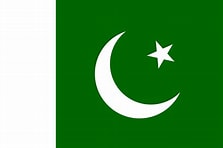The signing of the maritime demarcation agreement covering 330 sq miles between extreme rivals — Lebanon and Israel — is no mean feat. Years of conflict and distrust, non-diplomatic recognition and the absence of direct ties between the two took its toll.
The pact Lebanon and Israel is no mean feat

But this time, even if the talks were indirect, including the signing of the deal via diplomatic courier’s part being played by the United States and the United Nations (UN) and with the help of the French, the outcome was even welcomed by Hezbollah, a major politico-religious force in Lebanon.
Israel obviously considers it a major diplomatic and economic victory and reportedly started pumping the oil and gas, which is so badly needed by the gas-starved Europeans — courtesy Russia-Ukraine war.
PM Yair Lapid, facing elections, claimed, “It is not every day that an enemy state recognises the State of Israel, in a written agreement, in front of the entire international community.”
The US has been reaching out to all potential suppliers, though with limited success, including Saudi Arabia, QATAR, OPEC+, and the GCC countries. Biden even threatened with ‘consequences’ that the relations with Saudi Arabia could be reviewed.
As such, no love was lost between them due to the semantics of various statements and personal jibes by Biden against the all-powerful PM Mohammed bin Salman.
If the arms lobby in the US is as powerful as we understand, one cannot imagine that the threats will be materialized against the biggest importer of US weapons. The US objective was mainly to limit Russian leverage while ensuring alternate gas supplies to Europeans, especially as winters are approaching and worse is yet to come.
The Mediterranean sea has been a zone of contestation among several resident and littoral powers as well as external actors from afar. Turkey and Greece have historically been at maritime loggerheads — which has acted as a major dampener even among the EU members.
Newer maritime equations are being formed where rivals seem to look and compete for economic dividends. Lebanon has been facing its worst economic and political crisis for quite some time now. Beirut referred to the deal as purely ‘technical’ without any political dimensions to keep its Arab stance over Palestine intact.
But the US negotiator Amos Hochstein termed it as safe and protected. He also assured that the US is there to see that no agreement violations occur. It will allow continuing exploring and working on the Block 9, which was a Lebanese concern.
Conveying his approval, President General Michel Aoun of Lebanon reiterated that the completion of the southern maritime borders’ demarcation is a technical work that does not have any political dimensions or effects that contradict the foreign policy pursued by Lebanon in its relations with other countries.
It strongly enables Lebanon to become a gas and oil-producing and exporting country after completing drilling and exploration works in the southern fields — starting with the Qana field, which will activate the economy and restores international confidence in Lebanon. It will also provide new job opportunities for the Lebanese youth.
Tel Aviv and PM Yair Lapid appeared to be ecstatic over the finalisation of the decade-old discussions as it enables exploration and exploitation at the proven Karish platform.
Congratulating the two sides, President Biden underscored that this “historic” deal resolves Israeli and Lebanese claims to natural gas reserves in the eastern Mediterranean Sea and “sets the stage for a more stable and prosperous region.”
He added that energy — particularly in the Eastern Mediterranean — should not be a cause for conflict but a tool for cooperation, stability, security, and prosperity. “This agreement takes us one step closer to realising a vision for the Middle East that is more secure, integrated, and prosperous, delivering benefits for all the people of the region.”
After the Abraham Accords, it appeared to be a significant achievement for US diplomacy, even if expedited by the weaponisation of energy by Russia and disquiet among the Europeans.
Meanwhile, another deal has been signed, to the dismay of Americans and Europeans. It was the Mediterranean Maritime Agreement, including the delimitation of the Exclusive Economic Zone (EEZ) between Turkey and Libya. It was heavily criticised by Cyprus, Greece US, France and other European powers as violative of international law. The UNCLOS had also termed it a void, but the UN eventually registered it under Article 102 of the UN Charter.
Turkey claimed that it was protecting its sovereign rights by enforcing the Blue Economy doctrine in disputed areas. Countering that, Egypt and Greece signed a maritime deal (2020), delimiting the rights for oil and gas in the Mediterranean.
Geo-economic contestation remains a major issue even though Turkey has started rapprochement with Saudi Arabia, Egypt, UAE and Israel, pursuant to a policy shift due to economic compulsions.
However, the embattled Tripoli government of PM Dbeibah signed some MoUs with Ankara for Hydrocarbons exploitation and exploration and implementation protocols for security agreement (October 2022).
Turkish Foreign Minister Mevlut Cavusoglu reiterated: “First of all, the Hydrocarbon Agreement that we just signed aims to allow cooperation between Turkish companies and Libyan companies (in areas, ed.) such as exploration and drilling with a “win-win” understanding in our maritime jurisdictions both on land and at sea.”
He further added that the new accord was between “two sovereign countries — it’s win-win for both, and other countries have no right to interfere”. Najla al-Mangoush, foreign minister in Libya’s Government of National Unity, justified the new deal, saying that it was “important due to the Ukrainian crisis and its repercussions” for energy markets.
Again, Greece and the rival Libyan Administration, which seemed directly impacted, called these deals illegal and ultra vires. Be that as it may, as long as Libyans remain divided with international actors and players backing rival sides, such actions can not be averted.
Whenever any agreement between two rival Libyan governments and Parliaments is achieved, Turkey would like to ensure that its interests remain protected. It is good to have some dialogues and mechanisms going but even the 5+5 dialogue has been moribund on both sides of the western Mediterranean due to the internal dynamic among several of its constituents.
The Western Mediterranean Forum, commonly referred to as 5+5 Dialogue, was officially launched in Rome in 1990 as an informal sub-regional forum whose main aim was to foster relations between European countries and the newly born Arab Maghreb Union.
The 5+5 Dialogue comprises Algeria, France, Italy, Libya, Malta, Mauritania, Morocco, Portugal, Spain and Tunisia.
On another front, the Iran Nuclear Deal or JCPOA negotiations have continued to drag on for one pretext or the other by both sides. The most opportune time, as per Europeans, appeared to be now since the flow of Iranian oil and gas could alleviate their suffering if the deal was revived. But the roadblocks and changing goalposts would act as a deterrent to any positive outcome.
Wanting something and working to deliver on it have a gaping hole as the conservative regime in Tehran, suffering from its domestic troubles, and the distracted deep state in the US follow the one-step forward and two-steps backward approach.
There is no doubt that the Mediterranean, like the Red Sea and the Indian Ocean or, for that matter, the Pacific, will remain hot zones of geo-strategic contestations, especially as the diversity of hot spots in the region and quest for influence in the maritime domain and control via hydrocarbons will remain dangerous and alive in times to come.
Source:
https://www.cnbctv18.com/views/maritime-pact-between-lebanon-israel-no-mean-feat-mediterranean-sea-15062711.htm







